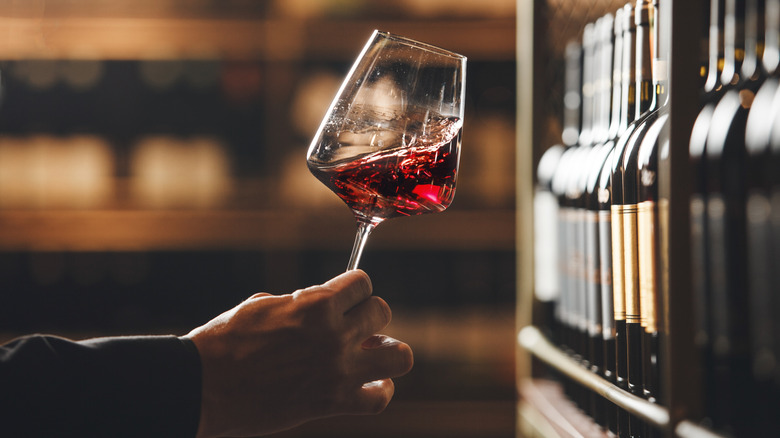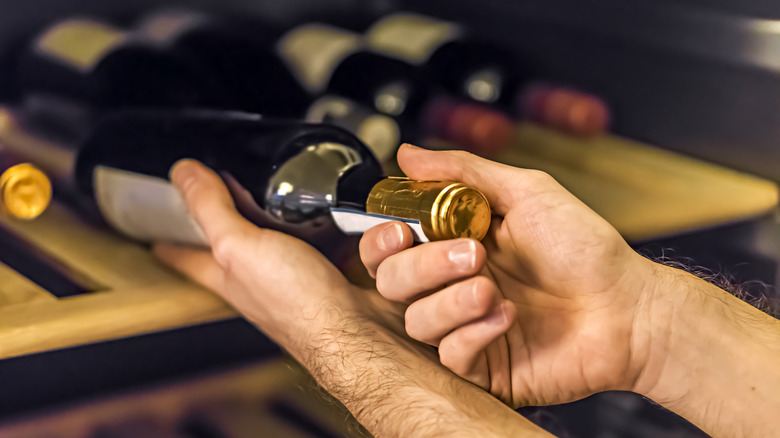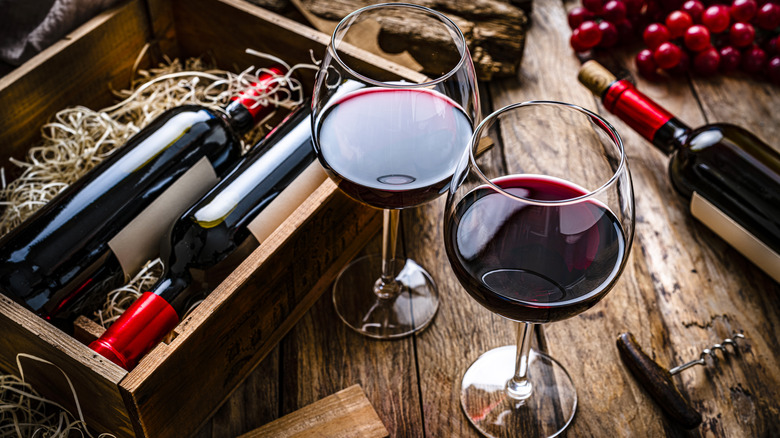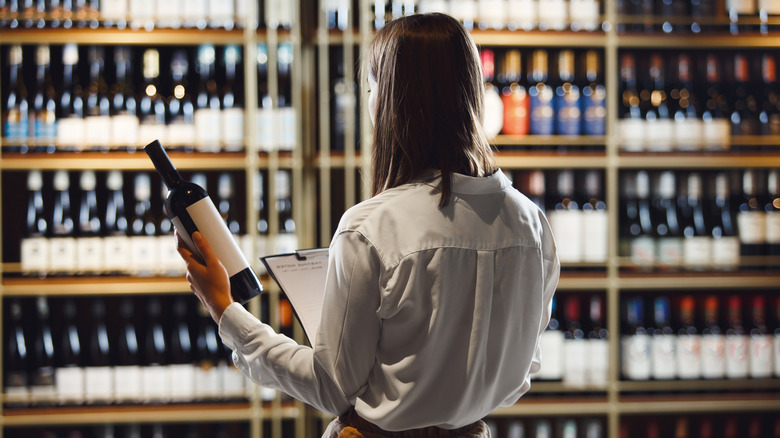3 Tips You Need To Know Before Buying Wine At An Online Auction
Selecting the right bottle at a wine store can be a complicated affair, and purchasing it at an online auction is much more so. Doreen Winkler, founder of Orange Glou wine store in New York and one of "America's Top Sommeliers" per Forbes, shares exclusively with Daily Meal, "Buying wine at an online auction is not for novices." Many of the wines sold at such auctions are rare and iconic, and those bidding for them are usually well-versed in the subtleties of wine. Winkler has three important tips to help you bid more confidently and walk away with the perfect bottle.
Before looking into the rules of each wine auction platform, it's worth learning a little about your preference for wine and remembering that more expensive wine won't necessarily taste better. Winkler suggests carefully checking the wine's storage history, assessing the bottle's condition, and knowing how to recognize a good vintage. "Some years are better than others," she says, "all because of Mother Nature, and that all has an impact on the final product." A good way to learn about wines is by trying several different kinds, and Winkler's Orange Glou wine subscription offers curated selections every month.
Ensure the wine you are bidding for online was properly stored
At a wine auction, you're attempting to "win" a special bottle as opposed to simply purchasing it, which means you likely won't see it beforehand. That said, auction houses will give you access to sales information regarding the wine. A few will even allow bidders to view the lots and examine the goods in person.
Doreen Winkler recommends looking into where the wine is from and how it has been stored. She notes, "It has to have a log — what hands has it been in, where has it been stored, has it been stored in a climate-controlled space, and is there proof for all of this? If not, there is a risk of it not being in the best shape." In case you win the auction, it's also important to ensure that your bottle of wine is properly stored until it is picked up or shipped to you in a secure manner.
Know your wine vintages
Auctions will often have pre-sale estimates, which attempt to approximate the lowest and highest price bids that a particular wine will fetch. While it's a good idea to study these rates and get a ballpark figure of how much you may have to spend on a successful bid, the true value of a wine is in how much you enjoy it. Therefore, it's a good idea to brush up on what a wine's vintage really means (it's about the year the grapes were harvested) and take note of what that might mean for the wine.
Doreen Winkler says, "The quality of the vintage varies by country and region — was it a good growing year, or did it hail a lot, was there damage to the grapes, was it too cold or too hot?" These are all factors that can change the taste of a particular wine and raise or lower its price at an auction.
Check to ensure the wine bottle is in good condition
Most auction platforms will give you detailed pictures and a catalog with details of the bottles on which you're bidding. It's always prudent to check the bottle as closely as possible, but don't get bogged down by the label. After all, there's a psychology to wine labels that makes us want to buy certain ones, but that won't tell you anything about the wine's condition.
Doreen Winkler explains that an entire inspection process is necessary for buying wines at auctions. "Check for factors like if the fill line is high enough and if the cork is still properly inserted," she warns.
This is because most wines at an auction are sold "as is," meaning that once the auction has ended, the winner will get the bottle in the condition it was in during the auction. While most reputed auction houses check the bottle rigorously for flaws, some things only become clear once it is opened. If the wine is found to be corked, oxidized, or degraded in some way when opened, it is highly unlikely the buyer will get a refund or exchange from the auctioning platform.



